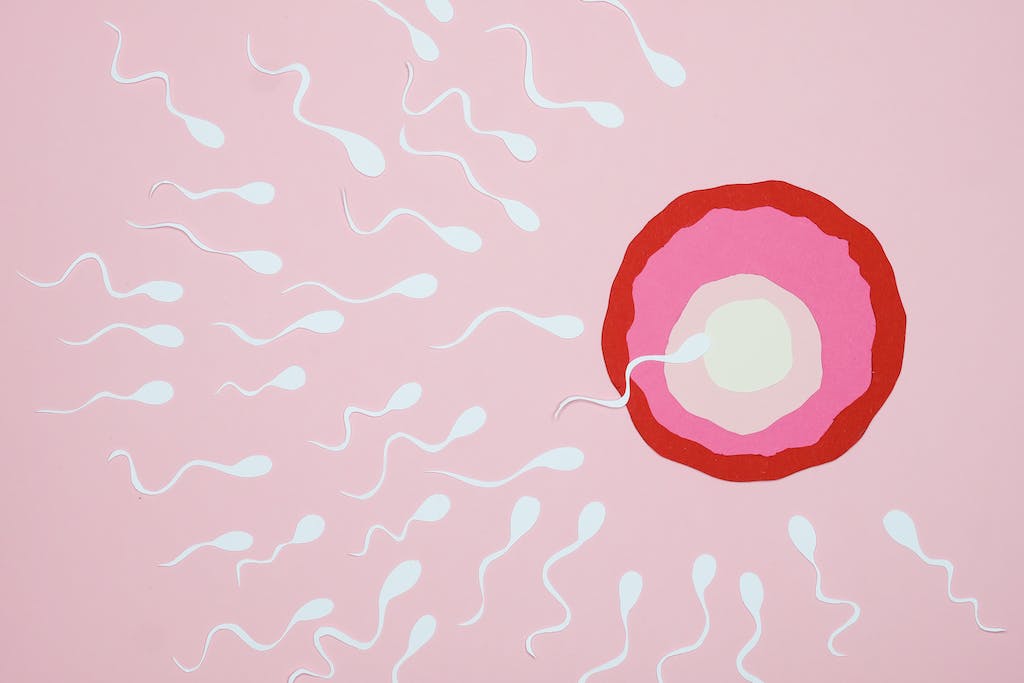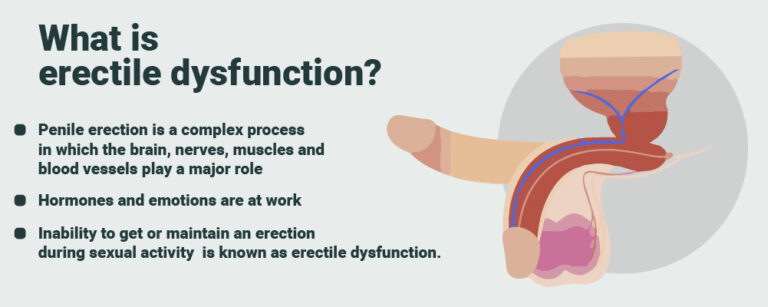Does Penis Size Affect Fertility? A Doctor Answers

Table of Contents
Understanding the Relationship between Male Reproductive Health and Fertility

Male reproductive health plays a crucial role in fertility, as it directly impacts the quality of sperm produced. Sperm health is a key factor in successful conception and the ability to father a child. However, many people may not fully understand the intricate relationship between male reproductive health and fertility.
One of the primary determinants of male reproductive health is the quality of sperm. Several factors can affect sperm health, including genetic factors, lifestyle choices, and medical conditions. Genetic factors, such as inherited disorders or abnormalities, can impact sperm production and function. Lifestyle choices such as smoking, excessive alcohol consumption, and drug use can also have a detrimental effect on sperm health. Additionally, certain medical conditions such as obesity, diabetes, and hormonal imbalances can negatively impact male reproductive health and fertility.
Understanding the relationship between male reproductive health and fertility is crucial for couples who are trying to conceive. By taking proactive steps to address any potential issues and optimize reproductive health, individuals can increase their chances of successful conception and parenthood. It is important to consult with a healthcare professional specialized in male reproductive health to identify any underlying factors that may be affecting fertility. Through a comprehensive evaluation, personalized treatment plans can be developed to enhance male fertility and improve overall reproductive health.
The Importance of Sperm Health in Fertility

Sperm health plays a crucial role in male fertility. The quality and quantity of sperm can significantly impact the chances of conception. When it comes to fertility, it is not just about the production of sperm, but also about their motility and morphology.
Motility refers to the sperm’s ability to swim and navigate through the reproductive tract to reach the egg. Healthy and active sperm with good motility have a higher chance of fertilizing the egg. On the other hand, sperm with poor motility may struggle to reach the egg, resulting in reduced fertility. Morphology, on the other hand, refers to the shape and structure of the sperm. Sperm with normal morphology are more likely to be fertile compared to those with abnormal shapes.
Several factors can influence sperm health, including lifestyle factors such as diet, exercise, and smoking. Poor nutrition and unhealthy habits can have a detrimental effect on sperm quality and fertility. Additionally, certain medical conditions, such as hormonal imbalances and infections, can impact sperm health. It is essential for men to prioritize their overall health and make necessary lifestyle changes to improve sperm health and enhance fertility.
Factors Affecting Male Fertility Beyond Penis Size

When it comes to male fertility, there are several factors that can have an impact beyond penis size. While penis size is often a topic of concern for many men, it is important to understand that it is not the sole determinant of fertility. In fact, there are various other factors that play a crucial role in male reproductive health and fertility.
One significant factor that can affect male fertility is age. Just like women, men also experience a decline in fertility as they age. As men get older, the quality and quantity of sperm can decrease, making it more challenging for them to conceive. This decline in fertility is primarily attributed to age-related changes in hormonal levels and an increased risk of genetic abnormalities in sperm.
Additionally, lifestyle choices and habits can significantly impact male fertility. Factors such as smoking, excessive alcohol consumption, drug abuse, and poor nutrition can all have a negative effect on sperm quality and function. It is crucial for men to adopt a healthy lifestyle, including a balanced diet, regular exercise, and avoiding harmful substances in order to optimize their fertility potential.
By recognizing and understanding these factors that go beyond penis size, men can take proactive steps to improve their fertility and reproductive health. It is recommended to consult with a healthcare professional who specializes in fertility and reproductive medicine to address any concerns and receive personalized guidance.
Debunking Common Myths about Penis Size and Fertility

Penis size has long been a topic of fascination and concern for many men, often leading to misconceptions about its relationship to fertility. However, it is important to debunk some common myths surrounding penis size and fertility.
Firstly, it is crucial to note that there is no direct correlation between penis size and fertility. Fertility is primarily determined by factors such as sperm health, count, and motility, rather than the size of the penis. Sperm are produced in the testes, while the penis serves as the external reproductive organ for sexual intercourse. Therefore, the size of the penis plays no significant role in the ability to conceive.
Secondly, it is essential to understand that the male reproductive system is complex and involves various factors that contribute to fertility. While penis size is often a matter of personal concern for men, it does not affect the ability to reproduce. Rather, factors such as overall sperm health, hormonal balance, genetic factors, and lifestyle choices have a more significant impact on male fertility. It is crucial to focus on these aspects when evaluating fertility concerns, rather than fixating on penis size.
The Role of Genetics in Fertility and Penis Size
In the realm of male fertility, genetics play a significant role in determining both fertility potential and physical attributes such as penis size. Scientific research has emphasized the influence of genes in regulating various processes within the male reproductive system. For instance, certain gene variations have been associated with abnormal sperm production or function, leading to reduced fertility. Similarly, genes can also influence the development and growth of the penis during prenatal and pubertal stages.
One study conducted by Jorgenson et al. (2018) found that certain gene variants were linked to both male fertility and penis size. The researchers identified specific genes involved in testicular development and spermatogenesis, which significantly impacted sperm count, motility, and morphology. Moreover, they discovered correlations between penis size and genes related to embryonic growth and hormone signaling pathways. These findings highlight the important interplay between genetics, fertility, and physical attributes in males. However, it is essential to note that while genetics contributes to these characteristics, other factors may also play a role, such as environmental influences and lifestyle choices.
How Lifestyle Choices Impact Male Fertility
Lifestyle choices play a crucial role in male fertility, affecting the quantity and quality of sperm production. One critical factor is diet. Poor nutrition, especially a diet high in processed foods, can negatively impact sperm count and motility. On the other hand, a healthy diet rich in antioxidants, essential fatty acids, and vitamins and minerals such as zinc and vitamin C, can promote sperm health and increase fertility. It is advisable for men seeking to enhance their fertility to consume a diet that includes fresh fruits and vegetables, whole grains, lean proteins, and healthy fats.
In addition to diet, other lifestyle choices can also affect male fertility. For instance, excessive alcohol consumption and smoking have been linked to lower sperm count and decreased sperm motility. Therefore, it is advisable to limit alcohol intake and quit smoking, not only for overall health but also for optimal fertility. Furthermore, stress and obesity can also have a detrimental impact on male fertility. High-stress levels can interfere with hormone production, leading to a decrease in sperm production. Similarly, obesity can disrupt hormone balance and impair sperm quality. Engaging in stress-reducing activities such as exercise, yoga, and meditation, as well as maintaining a healthy weight, can positively influence male fertility.
Certainly! Here’s information on how lifestyle choices impact male fertility, along with credible sources:
| Impact of Lifestyle Choices on Male Fertility | Lifestyle Factor | Credible Source |
|---|---|---|
| 1. Diet and Nutrition | – A balanced diet with essential nutrients supports reproductive health. Deficiencies in certain vitamins and minerals may negatively affect sperm quality. | Source: American Urological Association (AUA) – Male Infertility |
| 2. Weight and BMI | – Obesity or underweight conditions can impact hormonal balance and sperm production. Maintaining a healthy weight contributes to optimal fertility. | Source: Mayo Clinic – Male Infertility: Lifestyle and Environmental Factors |
| 3. Exercise and Physical Activity | – Regular moderate exercise supports overall health, but excessive endurance training may temporarily reduce sperm production. | Source: Fertility and Sterility Journal – Exercise-induced oxidative stress in humans |
| 4. Smoking and Tobacco Use | – Smoking is associated with decreased sperm count, motility, and morphology. Tobacco use introduces harmful toxins that negatively impact fertility. | Source: Human Reproduction Update – The effects of male age on sperm DNA damage |
| 5. Alcohol Consumption | – Excessive alcohol intake can impair sperm production and quality. Moderation is advised to maintain optimal fertility. | Source: Fertility and Sterility Journal – The effects of moderate alcohol consumption on sperm quality |
| 6. Stress and Mental Health | – Chronic stress may affect sperm parameters. Stress management techniques, such as meditation and relaxation, can have positive effects on fertility. | Source: Fertility and Sterility Journal – Psychological stress and semen quality |
| 7. Heat Exposure | – Prolonged exposure to high temperatures, such as hot baths or saunas, may temporarily reduce sperm production. Wearing tight underwear may also contribute. | Source: American Society of Reproductive Medicine – Male Infertility Best Practice Policy Committee |
| 8. Environmental Toxins and Chemicals | – Exposure to environmental pollutants, pesticides, and industrial chemicals may negatively impact sperm quality. Minimizing exposure is advisable. | Source: Human Reproduction Update – Environmental effects on male reproductive health |
Exploring the Influence of Hormonal Imbalances on Fertility
Hormonal imbalances can significantly impact male fertility. The delicate balance of hormones in the male reproductive system plays a crucial role in sperm production and overall reproductive health. Testosterone, follicle-stimulating hormone (FSH), luteinizing hormone (LH), and prolactin are among the key hormones involved in regulating the reproductive process.
Testosterone, commonly known as the male sex hormone, is essential for sperm production and sexual function. Low testosterone levels can lead to decreased sperm production and quality, resulting in impaired fertility. On the other hand, elevated testosterone levels may disrupt the delicate hormonal balance and negatively affect sperm production as well. Similarly, imbalances in FSH and LH levels can interfere with sperm production and maturation. These hormonal imbalances can arise due to a variety of reasons, such as certain medications, chronic medical conditions, or underlying genetic issues. Understanding and addressing these imbalances are crucial steps towards improving male fertility and increasing the chances of successful conception.
It is worth noting that hormonal imbalances can sometimes be an indicator of an underlying medical condition. Conditions such as hypogonadism, where the testes do not produce enough testosterone, or hyperprolactinemia, where the body produces excessive prolactin, can significantly impact fertility. Proper diagnosis and treatment of these conditions can help restore hormonal balance and improve reproductive health. If you suspect that hormonal imbalances may be affecting your fertility, it is important to consult with a healthcare professional who can conduct the necessary tests and provide appropriate treatment options. Understanding and addressing hormonal imbalances is a crucial aspect of managing male fertility and increasing the chances of successful conception.
Medical Conditions and Their Effect on Male Fertility
Certain medical conditions can have a significant impact on male fertility. One such condition is varicocele, which refers to the enlargement of the veins within the scrotum. This can lead to decreased sperm production and quality, as well as hormonal imbalances. Another condition that can affect male fertility is testicular cancer. Not only can the cancer itself impair sperm production, but the treatments, such as chemotherapy and radiation therapy, can also have detrimental effects. Additionally, conditions like diabetes and high blood pressure can contribute to fertility problems by causing damage to the blood vessels and nerves that play a crucial role in sexual function and sperm production.
Furthermore, hormonal disorders, such as hypogonadism or hyperprolactinemia, can disrupt the delicate balance of hormones involved in male fertility. Hypogonadism refers to the inadequate production of testosterone, which can result in reduced sperm production and impaired sexual function. On the other hand, hyperprolactinemia occurs when there is an overproduction of prolactin, a hormone that can suppress the production of testosterone and impair sperm maturation. It is essential for individuals with these hormonal disorders to undergo proper evaluation and treatment to optimize their chances of achieving pregnancy.
In conclusion, it is crucial to recognize how medical conditions can impact male fertility. Varicocele, testicular cancer, diabetes, high blood pressure, and hormonal disorders are just a few examples of conditions that can reduce sperm production, impair sperm quality, and disrupt the hormonal balance necessary for fertility. Seeking early diagnosis and appropriate treatment for these medical conditions is crucial for couples trying to conceive and should be done under the guidance of medical professionals.
Techniques for Assessing Male Fertility and Reproductive Health
There are several techniques available to assess male fertility and reproductive health. These methods can provide valuable insights into a man’s ability to conceive and may help identify any underlying issues that may be affecting fertility. One commonly used technique is a semen analysis, which involves examining a semen sample for various parameters including sperm count, motility, and morphology. This test provides essential information about the quantity and quality of sperm present, which is crucial for successful fertilization.
Another technique commonly used is the hormonal evaluation. Hormonal imbalances can significantly impact male fertility, and testing hormone levels can help identify any abnormalities. This evaluation typically involves testing for levels of hormones such as testosterone, follicle-stimulating hormone (FSH), luteinizing hormone (LH), and prolactin. These hormones play crucial roles in sperm production and maturation, and any deviations from the normal range can indicate potential fertility issues.
In addition to semen analysis and hormonal evaluation, genetic testing may also be conducted to assess male fertility. Genetic abnormalities can affect sperm production and function, resulting in reduced fertility or even infertility. Testing for genetic conditions like Klinefelter syndrome, Y-chromosome microdeletions, and cystic fibrosis gene mutations can provide valuable information about potential genetic factors contributing to infertility.
It is important to note that these techniques provide valuable insights into male fertility, but they are not definitive diagnostic tools. They serve as essential pieces of the puzzle in evaluating male reproductive health, along with a comprehensive medical history, physical examination, and other tests as determined by a healthcare professional. Furthermore, the interpretation of the results should be done by qualified medical professionals experienced in reproductive medicine and infertility. Ultimately, a comprehensive approach is necessary to attain a thorough understanding of a man’s fertility status and to determine the most appropriate course of action for couples struggling with infertility.
Please note that the information provided here is for informational purposes only and should not replace the guidance and expertise of a qualified healthcare professional.
The Connection between Penis Size and Sexual Satisfaction
When it comes to sexual satisfaction, many individuals may wonder about the connection between penis size and pleasure. It is important to note that while penis size can impact one’s confidence and self-esteem, it does not necessarily correlate with sexual satisfaction. Numerous studies have shown that the majority of individuals prioritize other aspects of sexual experience, such as emotional intimacy, communication, and overall sexual compatibility, over penis size alone.
Research suggests that sexual satisfaction is more influenced by factors such as arousal, sexual technique, and the ability to satisfy one’s partner’s needs and desires. In fact, a study published in the Journal of Sexual Medicine found that only a small percentage of individuals reported a preference for larger penis size, with the majority emphasizing the importance of sexual communication, emotional connection, and partner satisfaction.
It is crucial to remember that sexual satisfaction is a complex interplay of physical, emotional, and psychological factors. Open and honest communication, exploring sexual preferences and desires, and understanding one’s partner’s needs are key aspects in fostering a satisfying sexual relationship. Seeking professional guidance, if needed, can also provide valuable insights and support in addressing any concerns related to sexual satisfaction and overall well-being.
Psychological Factors and Male Fertility
Male fertility can be influenced by a range of psychological factors. Research has shown that stress, anxiety, and depression can all have negative effects on male reproductive health. Chronic stress, for example, can disrupt the hormonal balance in the body, leading to decreased sperm production and quality. Similarly, mental health conditions such as anxiety and depression can impact sexual desire and function, which can in turn affect fertility.
Furthermore, psychological factors can also play a role in the success of fertility treatments. Studies have found that men who have higher levels of emotional distress may experience lower success rates with assisted reproductive techniques. It is believed that the stress and anxiety associated with fertility treatments can affect sperm production and quality, making it more difficult to achieve pregnancy.
It is important for men struggling with fertility issues to address any underlying psychological factors that may be contributing to their difficulties. Seeking support from a mental health professional or joining a support group can be beneficial in managing stress, anxiety, and depression. Additionally, practicing stress-reducing techniques such as meditation, exercise, and relaxation exercises can help improve overall mental well-being and, in turn, enhance male fertility.
Strategies for Enhancing Male Fertility Regardless of Penis Size
One important strategy for enhancing male fertility is maintaining a healthy lifestyle. This includes regular exercise, a well-balanced diet, and avoiding harmful habits such as smoking and excessive alcohol consumption. Studies have shown that men who exercise regularly have higher sperm counts and better sperm quality than those who lead sedentary lifestyles. Additionally, a diet rich in antioxidants, vitamins, and minerals can promote sperm health. Foods such as fruits, vegetables, whole grains, lean proteins, and nuts have been associated with improved sperm parameters. It is also recommended to limit the consumption of processed foods and sugar-sweetened beverages, as they have been linked to decreased fertility.
Another key aspect of enhancing male fertility is managing stress levels. Chronic stress can have negative effects on reproductive health, including reducing sperm quality and impairing sperm motility. Engaging in stress-reducing activities such as meditation, yoga, or engaging in hobbies can be beneficial. Additionally, adequate sleep is crucial for overall health, including fertility. Studies have shown that men who consistently get enough sleep have higher sperm counts and better sperm quality compared to those who are sleep-deprived.
In conclusion, by adopting a healthy lifestyle, managing stress levels, and getting enough sleep, men can enhance their fertility regardless of penis size. It is important to note that individual factors may vary, and consulting with a healthcare professional can provide personalized advice and guidance for optimizing fertility.
Seeking Professional Help: When to Consult a Doctor about Fertility Concerns
Fertility concerns can be a source of stress and anxiety for many couples, and knowing when to seek professional help is crucial. If you and your partner have been actively trying to conceive for at least a year without success, it may be time to consult a doctor about your fertility concerns. This timeline is reduced to six months if the female partner is over the age of 35, as fertility declines with age. However, if you have a known medical condition or suspect that there may be an underlying issue affecting your fertility, it is advisable to seek help sooner.
When deciding to consult a doctor, it is essential to choose a healthcare professional who specializes in reproductive health and infertility. A reproductive endocrinologist or a fertility specialist will have the expertise and resources to conduct a thorough assessment of both partners and provide tailored solutions to address your fertility concerns. During your initial consultation, your doctor will review your medical history, conduct physical examinations, and may recommend specific tests to assess your reproductive health. These tests may include a semen analysis, hormonal assessments, genetic tests, and evaluations of pelvic structures in the female partner. Based on the findings, your doctor will be able to provide guidance on the next steps to take and discuss potential treatment options.
• Fertility concerns can cause stress and anxiety for couples
• Seek professional help if trying to conceive for at least a year without success
• If female partner is over 35, seek help after six months of unsuccessful attempts
• Seek help sooner if there are known medical conditions or suspected underlying issues affecting fertility
When deciding to consult a doctor about fertility concerns, it is crucial to choose a healthcare professional who specializes in reproductive health and infertility. A reproductive endocrinologist or fertility specialist will have the necessary expertise and resources to conduct a comprehensive assessment of both partners and provide tailored solutions.
During your initial consultation with the doctor, they will review your medical history and perform physical examinations. They may also recommend specific tests to assess your reproductive health. These tests may include semen analysis for male partners, hormonal assessments for both partners, genetic tests, and evaluations of pelvic structures in the female partner.
Based on the findings from these assessments, your doctor will be able to provide guidance on the next steps to take regarding your fertility concerns. They will discuss potential treatment options that are suitable for you and your partner’s unique situation.
It is important not to delay seeking professional help when dealing with fertility concerns. Early intervention can increase the chances of successful conception or identify any underlying issues that need addressing. By consulting a specialized healthcare professional in reproductive health and infertility, you can receive personalized care and support throughout your journey towards parenthood.
Addressing Male Infertility: Treatment Options and Support Services
In addressing male infertility, there are several treatment options available, depending on the underlying cause. One common approach is the use of medications to treat hormonal imbalances or to stimulate sperm production. For example, men with low testosterone levels may benefit from testosterone replacement therapy, while those with a low sperm count may be prescribed medications such as clomiphene citrate or gonadotropins.
In some cases, surgery may be recommended to correct anatomical abnormalities that affect fertility. This can include procedures to correct varicoceles, which are enlarged veins in the scrotum that can impair sperm production. Surgery may also be necessary to repair blockages in the male reproductive tract or to retrieve sperm for use in assisted reproductive techniques, such as in vitro fertilization (IVF).
While medical interventions can be effective in treating male infertility, it is also important to address the emotional and psychological aspects of infertility. Support services, such as counseling or support groups, can provide individuals and couples with the necessary tools to cope with the challenges of infertility. These services can help individuals navigate the complex emotions and stresses associated with fertility treatments, as well as provide information about alternative family-building options, such as adoption or donor insemination. It is crucial to recognize that infertility affects not only the physical body but also the emotional well-being of individuals and their partners, and a holistic approach to treatment is key.
What is male infertility?
Male infertility refers to the inability to conceive a child due to issues related to male reproductive health, such as low sperm count, poor sperm quality, or other factors affecting sperm function.
What are the common factors affecting male fertility?
Factors affecting male fertility include genetic disorders, hormonal imbalances, lifestyle choices (such as smoking or excessive alcohol consumption), certain medical conditions (like diabetes or obesity), and exposure to environmental toxins or radiation.
How does sperm health impact fertility?
Sperm health is crucial for fertility as healthy sperm are required to fertilize the egg successfully. Factors such as sperm count, motility (movement), morphology (shape), and overall quality can greatly influence the chances of conception.
Is penis size related to fertility?
No, penis size does not have a direct impact on fertility. Fertility is determined by factors such as sperm health, reproductive organ function, and overall reproductive health.
Can hormonal imbalances affect male fertility?
Yes, hormonal imbalances can affect male fertility. Hormones play a crucial role in sperm production and other reproductive functions. Imbalances in hormones, such as testosterone or thyroid hormones, can negatively affect fertility.
When should I consult a doctor regarding fertility concerns?
If you and your partner have been actively trying to conceive for a year without success, or if you have any concerns about your fertility, it is advisable to consult a doctor who specializes in reproductive health or a fertility specialist.
What treatment options are available for male infertility?
Treatment options for male infertility depend on the underlying cause and may include lifestyle modifications, medication, surgical interventions, or assisted reproductive techniques such as in vitro fertilization (IVF) or intracytoplasmic sperm injection (ICSI).
Are there support services available for individuals struggling with male infertility?
Yes, there are various support services available for individuals and couples dealing with male infertility. These include counseling services, support groups, online forums, and educational resources dedicated to helping individuals navigate the emotional and psychological aspects of infertility.
How can lifestyle choices impact male fertility?
Certain lifestyle choices can negatively impact male fertility, such as smoking, excessive alcohol consumption, drug use, poor diet, sedentary lifestyle, exposure to environmental toxins, and prolonged exposure to high temperatures (such as hot tubs or saunas).
Can psychological factors affect male fertility?
Yes, psychological factors can indirectly impact male fertility. Stress, anxiety, and depression can affect hormone levels, sexual function, and overall reproductive health, potentially reducing fertility. It is important to address and manage these psychological factors when experiencing fertility concerns.
What are some strategies to enhance male fertility?
Strategies to enhance male fertility include maintaining a healthy lifestyle, managing stress levels, avoiding exposure to harmful substances or environments, maintaining a healthy weight, getting regular exercise, and seeking professional help if needed.





